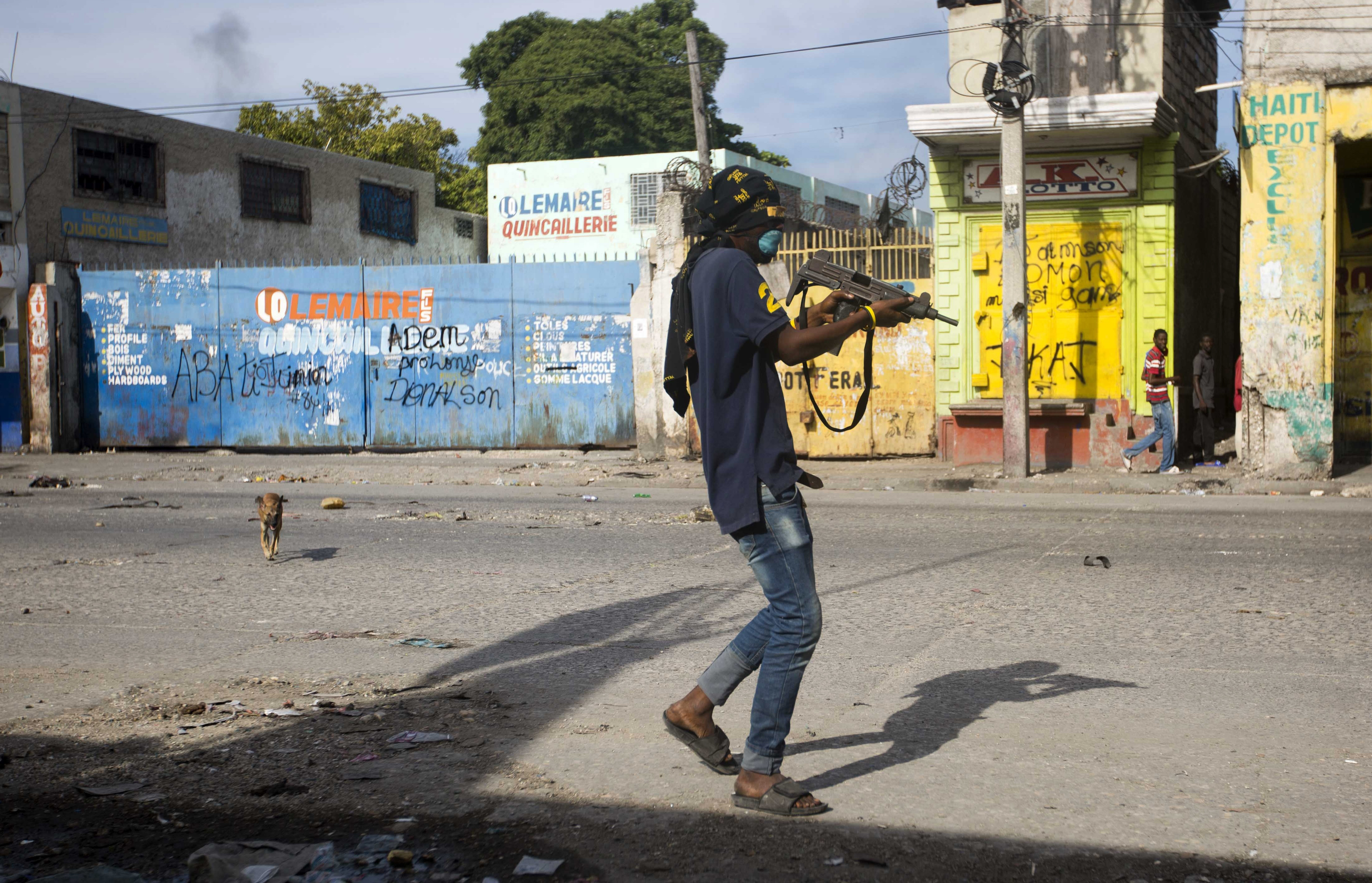Haitian gang leader calls on followers to use 'legitimate violence' to protest president's assassination


A free daily email with the biggest news stories of the day – and the best features from TheWeek.com
You are now subscribed
Your newsletter sign-up was successful
The lull in gang violence that came in the wake of Haitian President Jovenel Moïse's assassination is now over, with Port-au-Prince's most powerful gang leader, Jimmy "Barbecue" Cherizier, calling on his followers to take to the streets and "demand justice" against this "cowardly" attack by "foreign mercenaries in the country."
Haiti is the poorest country in the Western Hemisphere, and before Moïse's assassination last week, was already in turmoil. There have been protests for months over inflation and food shortages and government corruption, with deadly gang violence an ongoing issue — hundreds have been killed in Port-au-Prince alone this year.
After Moïse was gunned down inside his home, people in Port-au-Prince mostly stayed off the streets, and the gangs also seemed to retreat. On Saturday, Cherizier, who leads an alliance of gang leaders called the G9 Family and Allies, released a video appealing to supporters, saying it was time to get back out there, as they need to liberate Haiti. His followers must "practice what we call legitimate violence," he said. "If they shoot on us, you know what to do. You are not children."
The Week
Escape your echo chamber. Get the facts behind the news, plus analysis from multiple perspectives.

Sign up for The Week's Free Newsletters
From our morning news briefing to a weekly Good News Newsletter, get the best of The Week delivered directly to your inbox.
From our morning news briefing to a weekly Good News Newsletter, get the best of The Week delivered directly to your inbox.
He also told business owners of Syrian and Lebanese descent to leave, because they are holding Haiti "and its economy hostage," The Washington Post reports. It's time, he added, "that folks who look like us own supermarkets in this country. It's time that we own car dealerships and banks."
The gangs in Port-au-Prince are blocking roads that lead to the southern part of Haiti, which has disrupted commerce and the transport of gasoline. A journalist living in the Martissant neighborhood told the Post that it's long been a gamble to leave home, and residents know they "can be a victim at any time. Anyone who chooses to take the road knows there are three possibilities: Either you die, you're wounded, or you get home safe."
Since Moïse's assassination, it's believed that more than 13,000 people have fled their homes in Port-au-Prince, the United Nations Office for the Coordination of Humanitarian Affairs said, and on Saturday, hundreds of Haitians went to the U.S. Embassy in Port-au-Prince's Tabarre neighborhood to ask for asylum.
A free daily email with the biggest news stories of the day – and the best features from TheWeek.com
Catherine Garcia has worked as a senior writer at The Week since 2014. Her writing and reporting have appeared in Entertainment Weekly, The New York Times, Wirecutter, NBC News and "The Book of Jezebel," among others. She's a graduate of the University of Redlands and the Columbia University Graduate School of Journalism.
-
 The environmental cost of GLP-1s
The environmental cost of GLP-1sThe explainer Producing the drugs is a dirty process
-
 Greenland’s capital becomes ground zero for the country’s diplomatic straits
Greenland’s capital becomes ground zero for the country’s diplomatic straitsIN THE SPOTLIGHT A flurry of new consular activity in Nuuk shows how important Greenland has become to Europeans’ anxiety about American imperialism
-
 ‘This is something that happens all too often’
‘This is something that happens all too often’Instant Opinion Opinion, comment and editorials of the day
-
 Epstein files topple law CEO, roil UK government
Epstein files topple law CEO, roil UK governmentSpeed Read Peter Mandelson, Britain’s former ambassador to the US, is caught up in the scandal
-
 Iran and US prepare to meet after skirmishes
Iran and US prepare to meet after skirmishesSpeed Read The incident comes amid heightened tensions in the Middle East
-
 EU and India clinch trade pact amid US tariff war
EU and India clinch trade pact amid US tariff warSpeed Read The agreement will slash tariffs on most goods over the next decade
-
 Israel retrieves final hostage’s body from Gaza
Israel retrieves final hostage’s body from GazaSpeed Read The 24-year-old police officer was killed during the initial Hamas attack
-
 China’s Xi targets top general in growing purge
China’s Xi targets top general in growing purgeSpeed Read Zhang Youxia is being investigated over ‘grave violations’ of the law
-
 Panama and Canada are negotiating over a crucial copper mine
Panama and Canada are negotiating over a crucial copper mineIn the Spotlight Panama is set to make a final decision on the mine this summer
-
 Why Greenland’s natural resources are nearly impossible to mine
Why Greenland’s natural resources are nearly impossible to mineThe Explainer The country’s natural landscape makes the task extremely difficult
-
 Iran cuts internet as protests escalate
Iran cuts internet as protests escalateSpeed Reada Government buildings across the country have been set on fire
